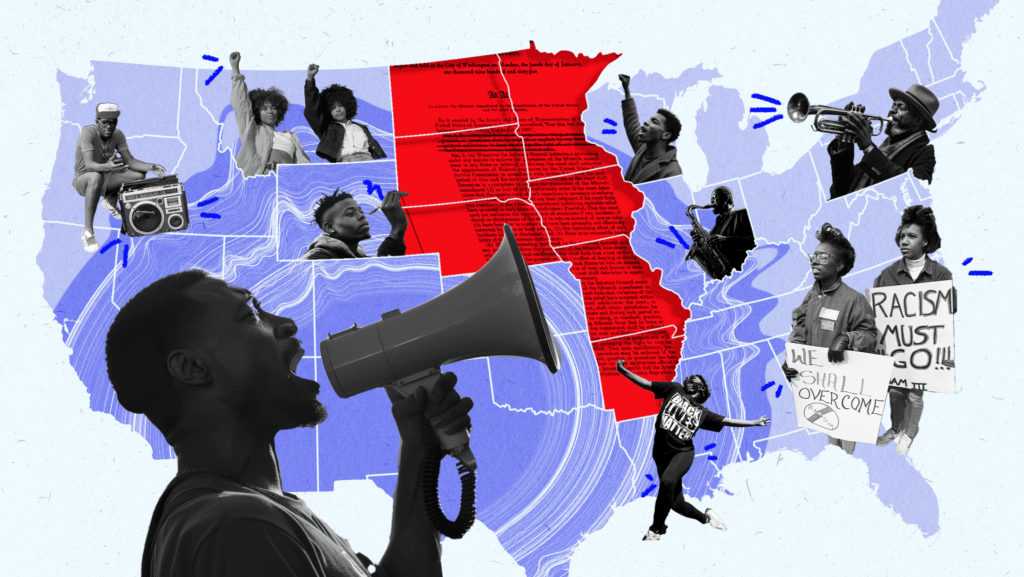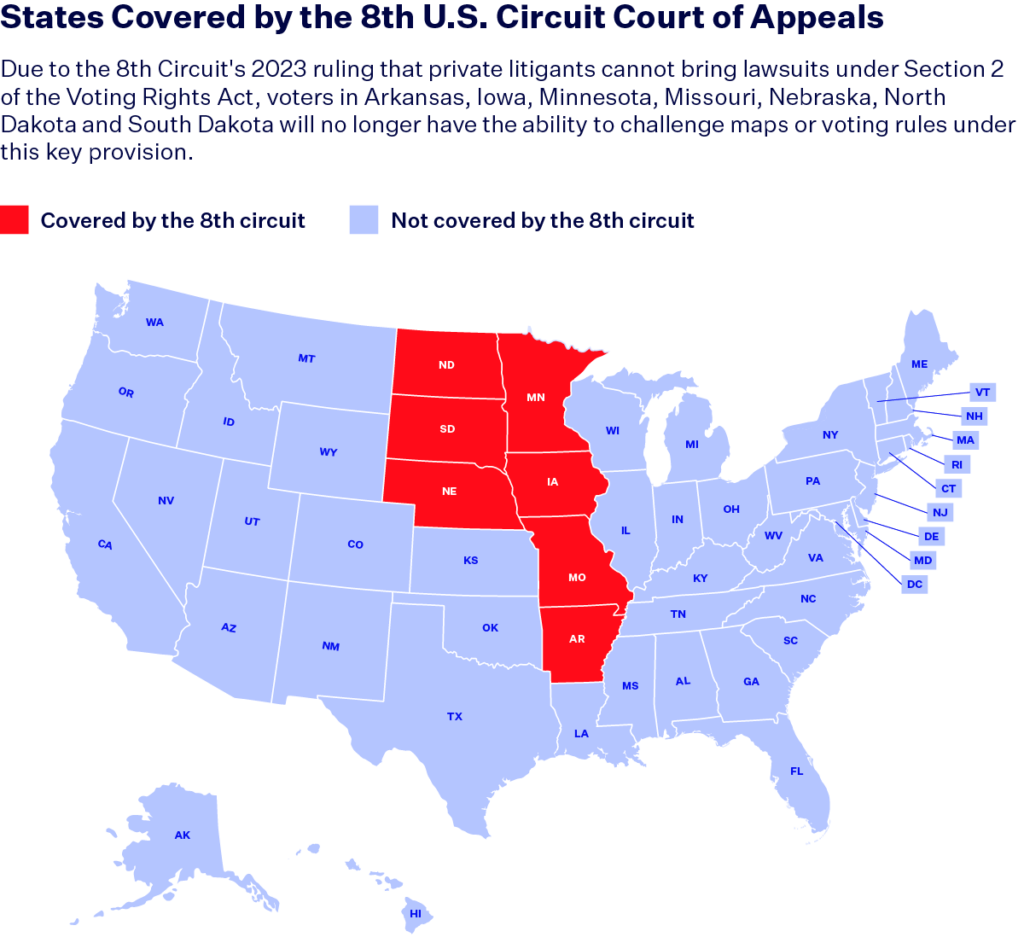Sounding the Alarm: The 8th Circuit’s Discordant Note on Voting Rights

As we stand at the intersection of history and justice, the echoes of Selma clash with a recent judicial decision that threatens to mute the progress in the fight for voting rights. In this pivotal moment, the Drum Major Institute (DMI), an institution grounded in the principles of justice and equality, emerges as a steadfast guardian of democratic ideals.
Reflecting on our journey — the strides made and the battles yet to be waged — a disheartening 2-1 ruling from the 8th U.S. Circuit Court of Appeals looms large. This decision, which bars private litigants from bringing lawsuits under Section 2 of the Voting Rights Act (VRA) — the very bulwark against racial discrimination in voting — challenges the democratic spirit we hold dear. It shackles the ability of citizens of seven states cutting through the heartland of our country to safeguard their voting rights, relegating them to depend on the U.S. attorney general’s discretion and limited resources rather than empowering private groups to initiate legal challenges against discriminatory election practices.

The heart of the 8th Circuit’s decision harbors a profound flaw, an affront to democratic governance. By curtailing the power of private citizens to challenge voting discrimination under Section 2, the court diminishes a potent tool, effectively silencing the voices of voters of color. This is more than a legal setback; it is a calculated blow against the democratic process itself.
The gravity of the 8th Circuit’s ruling becomes even clearer when contrasted with recent decisions from other circuits. Just weeks ago, a conservative-leaning panel from the 5th U.S. Circuit Court of Appeals acknowledged a private right to legal action under Section 2, directly opposing the 8th Circuit’s stance. The 6th and 11th U.S. Circuit Courts of Appeals also affirmed a private right of action. In 2023, the U.S. Supreme Court, in Allen v. Milligan, set a precedent favoring private plaintiffs in a Section 2 case out of Alabama, further highlighting the anomalous nature of the 8th Circuit’s decision.
Together, as drum majors for justice, we can ensure that the dream of Dr. King endures, and the Voting Rights Act remains a potent instrument in the pursuit of a more equitable and inclusive America.
This departure from established precedent is concerning. The 8th Circuit’s assertion that a “deeper look” into legislative history challenges the assumption of private plaintiffs’ rights under Section 2 disregards the robust body of legal interpretations. In stark contrast, the 5th, 6th and 11th Circuits maintain the recognition of a private right of action under Section 2, underscoring the 8th Circuit’s departure from legal consensus. The 8th Circuit’s unsupportable decision springs directly from Justice Clarence Thomas’s dissent and Justice Neil Gorsuch’s concurrence in Allen.
Condemning the 8th Circuit’s decision is more than a legal disagreement; it’s a stark acknowledgment of the potential reverberations through the foundations of our democracy. The ruling weakens the checks and balances embedded in the Voting Rights Act, creating a void susceptible to the intrusion of discriminatory practices and policies.
Limiting citizens’ avenues to challenge voting discrimination, the 8th Circuit’s decision obstructs the very progress ardently pursued by my father and others. It sends a disheartening message that our legal landscape is shifting away from active citizen participation in safeguarding the democratic process — a stark departure from the principles defining the ongoing fight for civil rights.
As we confront the challenges posed by the 8th Circuit’s ruling, the Drum Major Institute stands resolute. This is not merely a legal battle; it is a clarion call to action. Citizens, advocates and institutions like DMI must harmonize their efforts to reclaim the rhythm of justice that beats at the heart of our democracy.
Together, as drum majors for justice, we can ensure that the dream of Dr. King endures, and the Voting Rights Act remains a potent instrument in the pursuit of a more equitable and inclusive America. The struggle for justice is not silenced; it resonates in the collective voices rising against this discordant note in our democracy.
Martin Luther King III is the oldest son of Dr. Martin Luther King, Jr. and Coretta Scott King. As a global human rights activist, King III continues his father’s legacy by leading the Drum Major Institute.
Special thanks to Paul-Kalvin Collins, a graduate of Morehouse College and Georgetown University Law Center, for his contributions to this article.